afterLoad (456.22KB) (2.86ms)
afterInitialise (1.27MB) (54.37ms)
afterRoute (870.38KB) (24.3ms)
beforeRenderComponent com_tags (20.52KB) (3.81ms)
afterRenderComponent com_tags (2.82MB) (319ms)
afterDispatch (27.09KB) (11.17ms)
beforeRenderRawModule mod_articles_category (READ MORE...) (377.62KB) (23.86ms)
Before Access::preloadComponents (all components) (56.7KB) (8.32ms)
After Access::preloadComponents (all components) (103.05KB) (3.75ms)
Before Access::getAssetRules (id:8 name:com_content) (840B) (13μs)
After Access::getAssetRules (id:8 name:com_content) (7.05KB) (38μs)
afterRenderRawModule mod_articles_category (READ MORE...) (5.08KB) (193ms)
beforeRenderRawModule mod_tags_popular (Search) (4.81KB) (24μs)
afterRenderRawModule mod_tags_popular (Search) (1.84KB) (119ms)
beforeRenderRawModule mod_custom (Remember to download Heart Healthy Seniors) (816B) (31μs)
afterRenderRawModule mod_custom (Remember to download Heart Healthy Seniors) (4.86KB) (226μs)
beforeRenderRawModule mod_custom (Get additionel and more detailed knowledge ) (752B) (13μs)
afterRenderRawModule mod_custom (Get additionel and more detailed knowledge ) (1.67KB) (3.67ms)
beforeRenderRawModule mod_custom (BOOST YOUR IMMUNE DEFENSE) (608B) (21μs)
afterRenderRawModule mod_custom (BOOST YOUR IMMUNE DEFENSE) (928B) (32μs)
beforeRenderRawModule mod_custom (Are you taking supplements) (736B) (10μs)
afterRenderRawModule mod_custom (Are you taking supplements) (1.03KB) (22μs)
beforeRenderRawModule mod_custom (Antiaging) (720B) (9μs)
afterRenderRawModule mod_custom (Antiaging) (1.02KB) (19μs)
beforeRenderRawModule mod_custom (Exercise) (720B) (9μs)
afterRenderRawModule mod_custom (Exercise) (1.02KB) (20μs)
beforeRenderRawModule mod_custom (Check this before you buy a Q10 product) (752B) (8μs)
afterRenderRawModule mod_custom (Check this before you buy a Q10 product) (944B) (19μs)
beforeRenderRawModule mod_custom (Chronic fatigue tied Alan to his bed but Q10 capsules saved him:) (245.53KB) (15.29ms)
afterRenderRawModule mod_custom (Chronic fatigue tied Alan to his bed but Q10 capsules saved him:) (960B) (49μs)
beforeRenderModule mod_custom (Chronic fatigue tied Alan to his bed but Q10 capsules saved him:) (768B) (4μs)
afterRenderModule mod_custom (Chronic fatigue tied Alan to his bed but Q10 capsules saved him:) (1.3KB) (63μs)
beforeRenderRawModule mod_custom (Cholesterol-lowering without side effects:) (368B) (13μs)
afterRenderRawModule mod_custom (Cholesterol-lowering without side effects:) (2.19KB) (25μs)
beforeRenderModule mod_custom (Cholesterol-lowering without side effects:) (752B) (2μs)
afterRenderModule mod_custom (Cholesterol-lowering without side effects:) (1.28KB) (31μs)
beforeRenderModule mod_articles_category (READ MORE...) (21.32KB) (348μs)
afterRenderModule mod_articles_category (READ MORE...) (1.25KB) (40μs)
beforeRenderModule mod_tags_popular (Search) (5.17KB) (14μs)
afterRenderModule mod_tags_popular (Search) (1.27KB) (25μs)
beforeRenderModule mod_custom (Remember to download Heart Healthy Seniors) (1.17KB) (12μs)
afterRenderModule mod_custom (Remember to download Heart Healthy Seniors) (1.3KB) (23μs)
beforeRenderModule mod_custom (Get additionel and more detailed knowledge ) (368B) (9μs)
afterRenderModule mod_custom (Get additionel and more detailed knowledge ) (1.3KB) (23μs)
beforeRenderModule mod_custom (BOOST YOUR IMMUNE DEFENSE) (224B) (8μs)
afterRenderModule mod_custom (BOOST YOUR IMMUNE DEFENSE) (1.28KB) (22μs)
beforeRenderModule mod_custom (Are you taking supplements) (352B) (9μs)
afterRenderModule mod_custom (Are you taking supplements) (1.28KB) (21μs)
beforeRenderModule mod_custom (Antiaging) (336B) (8μs)
afterRenderModule mod_custom (Antiaging) (1.27KB) (22μs)
beforeRenderModule mod_custom (Exercise) (336B) (9μs)
afterRenderModule mod_custom (Exercise) (1.25KB) (21μs)
beforeRenderModule mod_custom (Check this before you buy a Q10 product) (352B) (9μs)
afterRenderModule mod_custom (Check this before you buy a Q10 product) (1.28KB) (21μs)
beforeRenderRawModule mod_menu (Main menu-US) (40.94KB) (5.71ms)
afterRenderRawModule mod_menu (Main menu-US) (152.66KB) (11.23ms)
beforeRenderModule mod_menu (Main menu-US) (720B) (6μs)
afterRenderModule mod_menu (Main menu-US) (4.36KB) (73μs)
beforeRenderRawModule mod_languages (Sprogskift) (3.44KB) (1.04ms)
afterRenderRawModule mod_languages (Sprogskift) (26.8KB) (4.86ms)
beforeRenderModule mod_languages (Sprogskift) (720B) (6μs)
afterRenderModule mod_languages (Sprogskift) (5.31KB) (22μs)
beforeRenderRawModule mod_finder () (6.34KB) (11μs)
afterRenderRawModule mod_finder () (214.16KB) (10.55ms)
beforeRenderModule mod_finder () (704B) (5μs)
afterRenderModule mod_finder () (5.79KB) (34μs)
beforeRenderRawModule mod_custom () (6.62KB) (144μs)
afterRenderRawModule mod_custom () (22.64KB) (5.57ms)
beforeRenderModule mod_custom () (704B) (6μs)
afterRenderModule mod_custom () (1.23KB) (53μs)
beforeRenderRawModule mod_menu (Main menu-US) (5.07KB) (106μs)
afterRenderRawModule mod_menu (Main menu-US) (5.8KB) (4.74ms)
beforeRenderModule mod_menu (Main menu-US) (720B) (5μs)
afterRenderModule mod_menu (Main menu-US) (1.25KB) (53μs)
beforeRenderRawModule mod_languages (Sprogskift Mobil) (912B) (18μs)
afterRenderRawModule mod_languages (Sprogskift Mobil) (3.89KB) (687μs)
beforeRenderModule mod_languages (Sprogskift Mobil) (720B) (4μs)
afterRenderModule mod_languages (Sprogskift Mobil) (1.27KB) (30μs)
beforeRenderRawModule mod_finder () (2.3KB) (9μs)
afterRenderRawModule mod_finder () (6.29KB) (3.57ms)
beforeRenderModule mod_finder () (704B) (5μs)
afterRenderModule mod_finder () (1.23KB) (50μs)
beforeRenderRawModule mod_custom () (8.66KB) (187μs)
afterRenderRawModule mod_custom () (904B) (143μs)
beforeRenderModule mod_custom () (704B) (3μs)
afterRenderModule mod_custom () (2.43KB) (25μs)
beforeRenderRawModule mod_custom () (688B) (84μs)
afterRenderRawModule mod_custom () (896B) (117μs)
beforeRenderModule mod_custom () (704B) (2μs)
afterRenderModule mod_custom () (2.71KB) (24μs)
afterRender (568.21KB) (23.62ms)
| 1 x afterRenderComponent com_tags (2.82MB) (37.11%) | 318.69ms |
| 1 x afterRenderRawModule mod_articles_category (READ MORE...) (5.08KB) (22.46%) | 192.88ms |
| 1 x afterRenderRawModule mod_tags_popular (Search) (1.84KB) (13.85%) | 118.90ms |
| 1 x afterInitialise (1.27MB) (6.33%) | 54.37ms |
| 1 x afterRoute (870.38KB) (2.83%) | 24.30ms |
| 1 x beforeRenderRawModule mod_articles_category (READ MORE...) (377.62KB) (2.78%) | 23.86ms |
| 1 x afterRender (568.21KB) (2.75%) | 23.62ms |
| 1 x beforeRenderRawModule mod_custom (Chronic fatigue tied Alan to his bed but Q10 capsules saved him:) (245.53KB) (1.78%) | 15.29ms |
| 1 x afterRenderRawModule mod_menu (Main menu-US) (152.66KB) (1.31%) | 11.23ms |
| 1 x afterDispatch (27.09KB) (1.3%) | 11.17ms |
| 1 x afterRenderRawModule mod_finder () (214.16KB) (1.23%) | 10.55ms |
| 1 x Before Access::preloadComponents (all components) (56.7KB) (0.97%) | 8.32ms |
| 1 x beforeRenderRawModule mod_menu (Main menu-US) (40.94KB) (0.66%) | 5.71ms |
| 1 x afterRenderRawModule mod_custom () (22.64KB) (0.65%) | 5.57ms |
| 1 x afterRenderRawModule mod_languages (Sprogskift) (26.8KB) (0.57%) | 4.86ms |
| 1 x afterRenderRawModule mod_menu (Main menu-US) (5.8KB) (0.55%) | 4.74ms |
| 1 x beforeRenderComponent com_tags (20.52KB) (0.44%) | 3.81ms |
| 1 x After Access::preloadComponents (all components) (103.05KB) (0.44%) | 3.75ms |
| 1 x afterRenderRawModule mod_custom (Get additionel and more detailed knowledge ) (1.67KB) (0.43%) | 3.67ms |
| 1 x afterRenderRawModule mod_finder () (6.29KB) (0.42%) | 3.57ms |
| 1 x afterLoad (456.22KB) (0.33%) | 2.86ms |
| 1 x beforeRenderRawModule mod_languages (Sprogskift) (3.44KB) (0.12%) | 1.04ms |
| 1 x afterRenderRawModule mod_languages (Sprogskift Mobil) (3.89KB) (0.08%) | 687μs |
| 1 x beforeRenderModule mod_articles_category (READ MORE...) (21.32KB) (0.04%) | 348μs |
| 1 x afterRenderRawModule mod_custom (Remember to download Heart Healthy Seniors) (4.86KB) (0.03%) | 226μs |
| 1 x beforeRenderRawModule mod_custom () (8.66KB) (0.02%) | 187μs |
| 1 x beforeRenderRawModule mod_custom () (6.62KB) (0.02%) | 144μs |
| 1 x afterRenderRawModule mod_custom () (904B) (0.02%) | 143μs |
| 1 x afterRenderRawModule mod_custom () (896B) (0.01%) | 117μs |
| 1 x beforeRenderRawModule mod_menu (Main menu-US) (5.07KB) (0.01%) | 106μs |
| 1 x beforeRenderRawModule mod_custom () (688B) (0.01%) | 84μs |
| 1 x afterRenderModule mod_menu (Main menu-US) (4.36KB) (0.01%) | 73μs |
| 1 x afterRenderModule mod_custom (Chronic fatigue tied Alan to his bed but Q10 capsules saved him:) (1.3KB) (0.01%) | 63μs |
| 1 x afterRenderModule mod_custom () (1.23KB) (0.01%) | 53μs |
| 1 x afterRenderModule mod_menu (Main menu-US) (1.25KB) (0.01%) | 53μs |
| 1 x afterRenderModule mod_finder () (1.23KB) (0.01%) | 50μs |
| 1 x afterRenderRawModule mod_custom (Chronic fatigue tied Alan to his bed but Q10 capsules saved him:) (960B) (0.01%) | 49μs |
| 1 x afterRenderModule mod_articles_category (READ MORE...) (1.25KB) (0%) | 40μs |
| 1 x After Access::getAssetRules (id:8 name:com_content) (7.05KB) (0%) | 38μs |
| 1 x afterRenderModule mod_finder () (5.79KB) (0%) | 34μs |
| 1 x afterRenderRawModule mod_custom (BOOST YOUR IMMUNE DEFENSE) (928B) (0%) | 32μs |
| 1 x beforeRenderRawModule mod_custom (Remember to download Heart Healthy Seniors) (816B) (0%) | 31μs |
| 1 x afterRenderModule mod_custom (Cholesterol-lowering without side effects:) (1.28KB) (0%) | 31μs |
| 1 x afterRenderModule mod_languages (Sprogskift Mobil) (1.27KB) (0%) | 30μs |
| 1 x afterRenderModule mod_tags_popular (Search) (1.27KB) (0%) | 25μs |
| 1 x afterRenderModule mod_custom () (2.43KB) (0%) | 25μs |
| 1 x afterRenderRawModule mod_custom (Cholesterol-lowering without side effects:) (2.19KB) (0%) | 25μs |
| 1 x beforeRenderRawModule mod_tags_popular (Search) (4.81KB) (0%) | 24μs |
| 1 x afterRenderModule mod_custom () (2.71KB) (0%) | 24μs |
| 1 x afterRenderModule mod_custom (Remember to download Heart Healthy Seniors) (1.3KB) (0%) | 23μs |
| 1 x afterRenderModule mod_custom (Get additionel and more detailed knowledge ) (1.3KB) (0%) | 23μs |
| 1 x afterRenderRawModule mod_custom (Are you taking supplements) (1.03KB) (0%) | 22μs |
| 1 x afterRenderModule mod_custom (BOOST YOUR IMMUNE DEFENSE) (1.28KB) (0%) | 22μs |
| 1 x afterRenderModule mod_languages (Sprogskift) (5.31KB) (0%) | 22μs |
| 1 x afterRenderModule mod_custom (Antiaging) (1.27KB) (0%) | 22μs |
| 1 x beforeRenderRawModule mod_custom (BOOST YOUR IMMUNE DEFENSE) (608B) (0%) | 21μs |
| 1 x afterRenderModule mod_custom (Are you taking supplements) (1.28KB) (0%) | 21μs |
| 1 x afterRenderModule mod_custom (Exercise) (1.25KB) (0%) | 21μs |
| 1 x afterRenderModule mod_custom (Check this before you buy a Q10 product) (1.28KB) (0%) | 21μs |
| 1 x afterRenderRawModule mod_custom (Exercise) (1.02KB) (0%) | 20μs |
| 1 x afterRenderRawModule mod_custom (Antiaging) (1.02KB) (0%) | 19μs |
| 1 x afterRenderRawModule mod_custom (Check this before you buy a Q10 product) (944B) (0%) | 19μs |
| 1 x beforeRenderRawModule mod_languages (Sprogskift Mobil) (912B) (0%) | 18μs |
| 1 x beforeRenderModule mod_tags_popular (Search) (5.17KB) (0%) | 14μs |
| 1 x beforeRenderRawModule mod_custom (Cholesterol-lowering without side effects:) (368B) (0%) | 13μs |
| 1 x Before Access::getAssetRules (id:8 name:com_content) (840B) (0%) | 13μs |
| 1 x beforeRenderRawModule mod_custom (Get additionel and more detailed knowledge ) (752B) (0%) | 13μs |
| 1 x beforeRenderModule mod_custom (Remember to download Heart Healthy Seniors) (1.17KB) (0%) | 12μs |
| 3 x beforeRenderModule mod_custom () (704B) (0%) | 11μs |
| 2 x beforeRenderModule mod_menu (Main menu-US) (720B) (0%) | 11μs |
| 1 x beforeRenderRawModule mod_finder () (6.34KB) (0%) | 11μs |
| 1 x beforeRenderRawModule mod_custom (Are you taking supplements) (736B) (0%) | 10μs |
| 2 x beforeRenderModule mod_finder () (704B) (0%) | 10μs |
| 1 x beforeRenderRawModule mod_custom (Exercise) (720B) (0%) | 9μs |
| 1 x beforeRenderModule mod_custom (Exercise) (336B) (0%) | 9μs |
| 1 x beforeRenderModule mod_custom (Check this before you buy a Q10 product) (352B) (0%) | 9μs |
| 1 x beforeRenderRawModule mod_finder () (2.3KB) (0%) | 9μs |
| 1 x beforeRenderRawModule mod_custom (Antiaging) (720B) (0%) | 9μs |
| 1 x beforeRenderModule mod_custom (Get additionel and more detailed knowledge ) (368B) (0%) | 9μs |
| 1 x beforeRenderModule mod_custom (Are you taking supplements) (352B) (0%) | 9μs |
| 1 x beforeRenderModule mod_custom (Antiaging) (336B) (0%) | 8μs |
| 1 x beforeRenderRawModule mod_custom (Check this before you buy a Q10 product) (752B) (0%) | 8μs |
| 1 x beforeRenderModule mod_custom (BOOST YOUR IMMUNE DEFENSE) (224B) (0%) | 8μs |
| 1 x beforeRenderModule mod_languages (Sprogskift) (720B) (0%) | 6μs |
| 1 x beforeRenderModule mod_custom (Chronic fatigue tied Alan to his bed but Q10 capsules saved him:) (768B) (0%) | 4μs |
| 1 x beforeRenderModule mod_languages (Sprogskift Mobil) (720B) (0%) | 4μs |
| 1 x beforeRenderModule mod_custom (Cholesterol-lowering without side effects:) (752B) (0%) | 2μs |
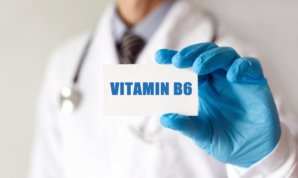 Vitamin B6 is needed for over 150 enzyme processes and has an overlooked role in the prevention of inflammation, which is a common thread in most chronic diseases, including cancer. Severe vitamin B6 deficiencies are rare, but scientists believe that even moderate deficiencies of the nutrient can increase the risk of many diseases. Deficiencies and poor utilization are a result of unhealthy diets, ageing, stimulant abuse, hormone pills and certain medical drugs, which means that many people are at risk of lacking this important vitamin.
Vitamin B6 is needed for over 150 enzyme processes and has an overlooked role in the prevention of inflammation, which is a common thread in most chronic diseases, including cancer. Severe vitamin B6 deficiencies are rare, but scientists believe that even moderate deficiencies of the nutrient can increase the risk of many diseases. Deficiencies and poor utilization are a result of unhealthy diets, ageing, stimulant abuse, hormone pills and certain medical drugs, which means that many people are at risk of lacking this important vitamin.








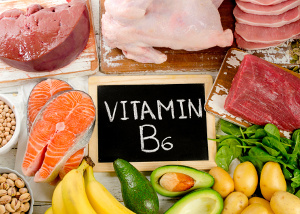 Pancreatic cancer remains one of the deadliest cancers even with improved therapies. Because many people are diagnosed too late and the prognoses are generally poor it is essential to focus a lot more on prevention for instance by striving to maintain normal weight and avoiding smoking. According to a new meta-analysis published in Nutrition Journal, it appears that large quantities of vitamin B6 from diet or supplements have the potential to lower the risk of pancreatic cancer. Earlier studies have also shown that vitamin B6 lowers the risk of bowel cancer.
Pancreatic cancer remains one of the deadliest cancers even with improved therapies. Because many people are diagnosed too late and the prognoses are generally poor it is essential to focus a lot more on prevention for instance by striving to maintain normal weight and avoiding smoking. According to a new meta-analysis published in Nutrition Journal, it appears that large quantities of vitamin B6 from diet or supplements have the potential to lower the risk of pancreatic cancer. Earlier studies have also shown that vitamin B6 lowers the risk of bowel cancer.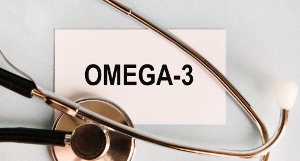
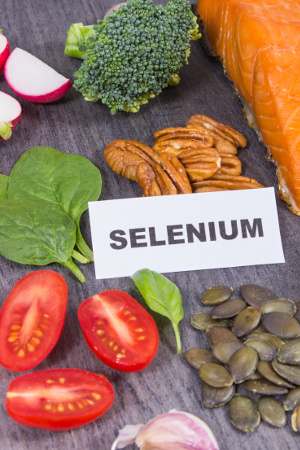
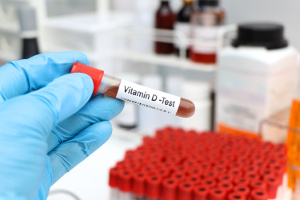 Melanoma is a type of malignant skin cancer that spreads rapidly. Being vitamin D-deficient doubles the risk of dying of the disease, according to a Spanish study that was presented at the European Academy of Dermatology and Venereology congress. It is commonly known that sunburns, which one should generally avoid, increase the risk of contracting skin cancer. But we must not forget that the summer sun is our main source of vitamin D and at our latitude, it necessary to take a vitamin D supplement in the wintertime. People who avoid the sun or have difficulty with synthesizing vitamin D in their skin should take a supplement all year round.
Melanoma is a type of malignant skin cancer that spreads rapidly. Being vitamin D-deficient doubles the risk of dying of the disease, according to a Spanish study that was presented at the European Academy of Dermatology and Venereology congress. It is commonly known that sunburns, which one should generally avoid, increase the risk of contracting skin cancer. But we must not forget that the summer sun is our main source of vitamin D and at our latitude, it necessary to take a vitamin D supplement in the wintertime. People who avoid the sun or have difficulty with synthesizing vitamin D in their skin should take a supplement all year round.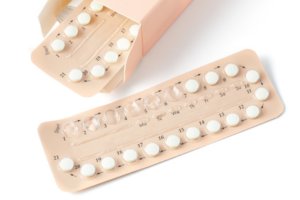 Birth control pills are commonly used as a source of prevention. Most women seem to tolerate the pills rather well, but there are known side effects such as headaches, mood swings, and a slightly increased risk of blood clots and breast cancer. The different side effects are a result of the birth control pills and their disturbing impact on various enzyme processes, which depend on most B vitamins, vitamin C, magnesium, selenium, and zinc. Vitamin C, zinc, and selenium also serve as effective antioxidants that protect our cells and cardiovascular system against oxidative stress. It is therefore essential to get plenty of these nutrients in order to lower the risk of side effects.
Birth control pills are commonly used as a source of prevention. Most women seem to tolerate the pills rather well, but there are known side effects such as headaches, mood swings, and a slightly increased risk of blood clots and breast cancer. The different side effects are a result of the birth control pills and their disturbing impact on various enzyme processes, which depend on most B vitamins, vitamin C, magnesium, selenium, and zinc. Vitamin C, zinc, and selenium also serve as effective antioxidants that protect our cells and cardiovascular system against oxidative stress. It is therefore essential to get plenty of these nutrients in order to lower the risk of side effects. Breast cancer is very common in the Western world and modern society. The disease is thought to be associated with lifestyle factors and lack of essential nutrients. For instance, it has been known for a long time that lack of vitamin D increases the risk of breast cancer. According to a new study that is published in the science journal Endocrinology, there is also a link between lack of vitamin D and the development of metastases in the lungs. Previous research also shows that the widespread deficiency of selenium, iodine, omega-3 fatty acids, and melatonin can increase the risk of breast cancer but supplements can help prevent the disease and possibly be used as add-on therapy.
Breast cancer is very common in the Western world and modern society. The disease is thought to be associated with lifestyle factors and lack of essential nutrients. For instance, it has been known for a long time that lack of vitamin D increases the risk of breast cancer. According to a new study that is published in the science journal Endocrinology, there is also a link between lack of vitamin D and the development of metastases in the lungs. Previous research also shows that the widespread deficiency of selenium, iodine, omega-3 fatty acids, and melatonin can increase the risk of breast cancer but supplements can help prevent the disease and possibly be used as add-on therapy. A new study shows that vitamin B3 has the potential to prevent skin cancer and melanoma, which is the most dangerous type of skin cancer. Apparently, vitamin B3 can boost the body’s repair of DNA damage caused by UV radiation from the sun or sunbeds.
A new study shows that vitamin B3 has the potential to prevent skin cancer and melanoma, which is the most dangerous type of skin cancer. Apparently, vitamin B3 can boost the body’s repair of DNA damage caused by UV radiation from the sun or sunbeds.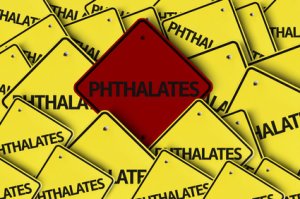 According to a new study, hormone-disrupting substances like bisphenol-A and phthalates can lower levels of vitamin D in the bloodstream. During the winter period, it is a problem to get enough vitamin D to begin with, as the sun sits low in the sky and we only get a limited amount of the nutrient from our diet. The combination of too little vitamin D and hormone-disrupting substances is rather unfortunate because lack of vitamin D increases the risk of infections, winter depression, diabetes, cardiovascular diseases, osteoporosis, and cancer.
According to a new study, hormone-disrupting substances like bisphenol-A and phthalates can lower levels of vitamin D in the bloodstream. During the winter period, it is a problem to get enough vitamin D to begin with, as the sun sits low in the sky and we only get a limited amount of the nutrient from our diet. The combination of too little vitamin D and hormone-disrupting substances is rather unfortunate because lack of vitamin D increases the risk of infections, winter depression, diabetes, cardiovascular diseases, osteoporosis, and cancer.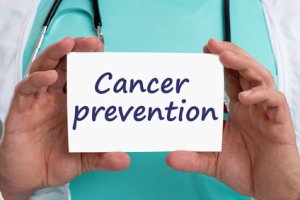 New figures from the cancer database, Nordcan, reveal that Danish women hold the record in cancer prevalence, and both sexes still have the lowest cancer survival rate among the Nordic countries. Experts claim that this is linked to our lifestyle. However, cancer even occurs among people with healthy lifestyles, and international studies suggest that modern diets tend to lack optimal amounts of selenium, vitamin D and omega-3, all of which have cancer-preventive properties. Research also points to melatonin, also known as the sleep hormone.
New figures from the cancer database, Nordcan, reveal that Danish women hold the record in cancer prevalence, and both sexes still have the lowest cancer survival rate among the Nordic countries. Experts claim that this is linked to our lifestyle. However, cancer even occurs among people with healthy lifestyles, and international studies suggest that modern diets tend to lack optimal amounts of selenium, vitamin D and omega-3, all of which have cancer-preventive properties. Research also points to melatonin, also known as the sleep hormone. The number of seniors in the world is growing steadily which means a surge in problems like cardiovascular disease, cancer, respiratory illnesses, overweight, diabetes, rheumatism, dementia, and Alzheimer’s disease. These diseases that have a widespread impact on human lives and are a burden to society are often linked to chronic inflammation. A group of scientists therefore decided to look closer at studies that have found a positive effect of the omega-3 fatty acids EPA and DHA on cognitive functioning, maintenance of muscle mass, and prevention and treatment of a host of serious diseases that are related to ageing. It is vital to start supplementing early and to take the right doses, according to the new review article published in Nutrients.
The number of seniors in the world is growing steadily which means a surge in problems like cardiovascular disease, cancer, respiratory illnesses, overweight, diabetes, rheumatism, dementia, and Alzheimer’s disease. These diseases that have a widespread impact on human lives and are a burden to society are often linked to chronic inflammation. A group of scientists therefore decided to look closer at studies that have found a positive effect of the omega-3 fatty acids EPA and DHA on cognitive functioning, maintenance of muscle mass, and prevention and treatment of a host of serious diseases that are related to ageing. It is vital to start supplementing early and to take the right doses, according to the new review article published in Nutrients.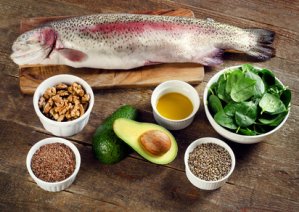 If you consume too much red meat it may increase your risk of colon cancer, but is there meat with the opposite effect? According to a new and groundbreaking study, eating salmon or other good sources of omega-3 fatty acids appears to help prevent this rather common cancer form and possibly even other cancers, as well. Just make sure not to get too much omega-6, especially from margarine and other plant oils, as it is vital to have the correct balance between the two types of fatty acids.
If you consume too much red meat it may increase your risk of colon cancer, but is there meat with the opposite effect? According to a new and groundbreaking study, eating salmon or other good sources of omega-3 fatty acids appears to help prevent this rather common cancer form and possibly even other cancers, as well. Just make sure not to get too much omega-6, especially from margarine and other plant oils, as it is vital to have the correct balance between the two types of fatty acids.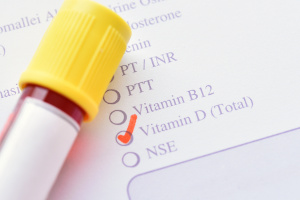 Having sufficient vitamin D in your blood protects you against several cancer forms, according to a new review article that is published in Seminars in Cancer Biology. The summer sun is our primary source of the vitamin, but we can only store a limited amount in the liver for the winter period. The problem is made worse by the fact that we spend too much time indoors, and ageing even increases the risk of chronic vitamin D deficiency. The question is how much vitamin D do we need to protect us against cancer?
Having sufficient vitamin D in your blood protects you against several cancer forms, according to a new review article that is published in Seminars in Cancer Biology. The summer sun is our primary source of the vitamin, but we can only store a limited amount in the liver for the winter period. The problem is made worse by the fact that we spend too much time indoors, and ageing even increases the risk of chronic vitamin D deficiency. The question is how much vitamin D do we need to protect us against cancer?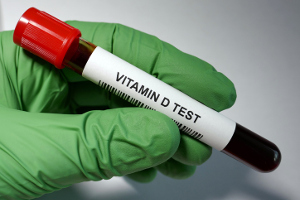 The interplay between vitamin D, magnesium, and calcium is vital for bone health and a number of other things, including cancer prevention. According to a new study that is published in American Journal of Clinical Nutrition, high blood levels of vitamin D and magnesium may lower colon cancer patients’ risk of dying of their disease. However, the current recommendations for vitamin D are not enough to reach optimal blood levels of the nutrient. Moreover, it is of vital importance that magnesium is properly balanced with calcium.
The interplay between vitamin D, magnesium, and calcium is vital for bone health and a number of other things, including cancer prevention. According to a new study that is published in American Journal of Clinical Nutrition, high blood levels of vitamin D and magnesium may lower colon cancer patients’ risk of dying of their disease. However, the current recommendations for vitamin D are not enough to reach optimal blood levels of the nutrient. Moreover, it is of vital importance that magnesium is properly balanced with calcium. For decades, science has had its focus on vitamin D in terms of cancer prevention. A new study shows that this applies particularly to women older than 55 years. It may be because cancer often takes many years to develop and because our ability to utilize the vitamin decreases as we grow older.
For decades, science has had its focus on vitamin D in terms of cancer prevention. A new study shows that this applies particularly to women older than 55 years. It may be because cancer often takes many years to develop and because our ability to utilize the vitamin decreases as we grow older.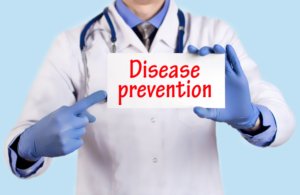
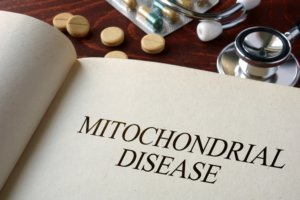 The mitochondria are the powerhouses of our cells that churn out energy in a process that involves oxygen, Q10, selenium, and other nutrients. Around 100 years ago, the German Nobel Prize winner, Professor Otto Warburg, demonstrated that even if cancer can be caused by a number of secondary factors, there is only one primary cause: alterations in the mitochondrial oxygen turnover. In his recent book, Tripping over the Truth, molecular biologist Travis Christoffersen describes how contemporary scientists confirm Warburg’s theories and says that we need to look at prevention and cancer treatment from an entirely different angle. Other studies show that Parkinson’s disease, migraine, senility, chronic fatigue, fibromyalgia, epilepsy, and other neurological disorders may be rooted in defects of the mitochondria that have many other functions besides delivering energy. It is therefore vital to take care of the mitochondria throughout life. You can read more about the ketogenic diet that optimizes mitochondrial energy turnover in different mitochondrial diseases.
The mitochondria are the powerhouses of our cells that churn out energy in a process that involves oxygen, Q10, selenium, and other nutrients. Around 100 years ago, the German Nobel Prize winner, Professor Otto Warburg, demonstrated that even if cancer can be caused by a number of secondary factors, there is only one primary cause: alterations in the mitochondrial oxygen turnover. In his recent book, Tripping over the Truth, molecular biologist Travis Christoffersen describes how contemporary scientists confirm Warburg’s theories and says that we need to look at prevention and cancer treatment from an entirely different angle. Other studies show that Parkinson’s disease, migraine, senility, chronic fatigue, fibromyalgia, epilepsy, and other neurological disorders may be rooted in defects of the mitochondria that have many other functions besides delivering energy. It is therefore vital to take care of the mitochondria throughout life. You can read more about the ketogenic diet that optimizes mitochondrial energy turnover in different mitochondrial diseases. Iodine's ability to protect against breast cancer has been demonstrated in animal studies. Furthermore, epidemiological studies suggest that consuming more dietary iodine lowers the risk of the dreaded disease, which represents 25% of all cancers in women.
Iodine's ability to protect against breast cancer has been demonstrated in animal studies. Furthermore, epidemiological studies suggest that consuming more dietary iodine lowers the risk of the dreaded disease, which represents 25% of all cancers in women.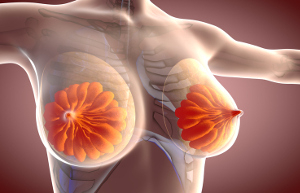 Breast cancer is the number one cause of cancer-related deaths among women worldwide. The diet has huge importance and according to a new Polish study, eating more fish with omega-3 fatty acids may help lower the risk of developing the disease. The study supports earlier research by showing that in order to prevent breast cancer, it is vital to consume plenty of omega-3. The best sources of these essential fatty acids are oily fish and fish oil supplements. The preventive effect of omega-3 is increased additionally if you also get plenty of vitamin D and selenium.
Breast cancer is the number one cause of cancer-related deaths among women worldwide. The diet has huge importance and according to a new Polish study, eating more fish with omega-3 fatty acids may help lower the risk of developing the disease. The study supports earlier research by showing that in order to prevent breast cancer, it is vital to consume plenty of omega-3. The best sources of these essential fatty acids are oily fish and fish oil supplements. The preventive effect of omega-3 is increased additionally if you also get plenty of vitamin D and selenium.
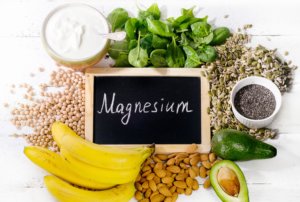 We need plenty of vitamin D for our bones and immune defense, for preventing cancer and so on, but if we lack magnesium, vitamin D does not work as expected. This is because magnesium is needed for activating vitamin D and enabling it to benefit the body’s cells and tissues. Magnesium also regulates blood levels of vitamin D, more specifically by increasing them if they are too low and lowering them if they are too high. This was demonstrated in a recent study from Vanderbilt University, the United States. The scientists call this highly important information, as there has been conflicting results from studies that compared blood levels of vitamin D in relation to colon cancer and various other diseases. Because magnesium deficiency is a widespread and overlooked problem, there is reason to believe that many people have difficulty with regulating levels of vitamin D in their blood. Also, they risk that their vitamin D does not have the desired effect in terms of preventing a host of different diseases.
We need plenty of vitamin D for our bones and immune defense, for preventing cancer and so on, but if we lack magnesium, vitamin D does not work as expected. This is because magnesium is needed for activating vitamin D and enabling it to benefit the body’s cells and tissues. Magnesium also regulates blood levels of vitamin D, more specifically by increasing them if they are too low and lowering them if they are too high. This was demonstrated in a recent study from Vanderbilt University, the United States. The scientists call this highly important information, as there has been conflicting results from studies that compared blood levels of vitamin D in relation to colon cancer and various other diseases. Because magnesium deficiency is a widespread and overlooked problem, there is reason to believe that many people have difficulty with regulating levels of vitamin D in their blood. Also, they risk that their vitamin D does not have the desired effect in terms of preventing a host of different diseases. Magnesium is required for a well-functioning immune defense and for controlling inflammatory processes that are vital to our health. Magnesium also appears to protect against COVID-19 and other infections and the development of cancer, according to a review article published in Journal of Health, Population, and Nutrition. Our modern, refined diet, stress, ageing, stimulant abuse, and different types of medicine also contribute to the widespread problems with magnesium deficiency.
Magnesium is required for a well-functioning immune defense and for controlling inflammatory processes that are vital to our health. Magnesium also appears to protect against COVID-19 and other infections and the development of cancer, according to a review article published in Journal of Health, Population, and Nutrition. Our modern, refined diet, stress, ageing, stimulant abuse, and different types of medicine also contribute to the widespread problems with magnesium deficiency. Cancer researchers from the University of Iowa in the United States have finally clarified how extremely high doses of vitamin C given as infusions are able to kill cancer cells. It turns out that the low levels of the enzyme, catalase, in cancer cells make them vulnerable to vitamin C’s ability to generate free radicals. That way, vitamin C works like a type of chemotherapy, while, at the same time, stimulating normal activity in healthy cells. We are dealing with a treatment that is virtually devoid of side effects.
Cancer researchers from the University of Iowa in the United States have finally clarified how extremely high doses of vitamin C given as infusions are able to kill cancer cells. It turns out that the low levels of the enzyme, catalase, in cancer cells make them vulnerable to vitamin C’s ability to generate free radicals. That way, vitamin C works like a type of chemotherapy, while, at the same time, stimulating normal activity in healthy cells. We are dealing with a treatment that is virtually devoid of side effects. Breast cancer is one of the most widespread cancer forms, with 80% of cases being classified as estrogen receptor-positive. The risk of this type of breast cancer increases when you receive hormone therapy with estrogen (estradiol). The risk is also increased by hormone-disrupting substances in the environment. However, a new study shows that melatonin is able to inhibit a gene that influences the estrogen receptors in breast cancer cells. Melatonin is primarily known for its role as a sleep hormone, but an increasing amount of research shows cancer-protective potential. It is therefore essential to make enough melatonin yourself or to compensate for deficiencies by taking melatonin supplements
Breast cancer is one of the most widespread cancer forms, with 80% of cases being classified as estrogen receptor-positive. The risk of this type of breast cancer increases when you receive hormone therapy with estrogen (estradiol). The risk is also increased by hormone-disrupting substances in the environment. However, a new study shows that melatonin is able to inhibit a gene that influences the estrogen receptors in breast cancer cells. Melatonin is primarily known for its role as a sleep hormone, but an increasing amount of research shows cancer-protective potential. It is therefore essential to make enough melatonin yourself or to compensate for deficiencies by taking melatonin supplements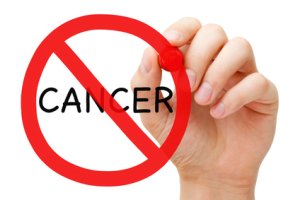 Melatonin is primarily known for its role as a sleep hormone. Nonetheless, studies reveal that melatonin has a variety of anti-cancer properties, and supplementing with the substance may increase the effect of chemotherapy while counteracting its side effects.
Melatonin is primarily known for its role as a sleep hormone. Nonetheless, studies reveal that melatonin has a variety of anti-cancer properties, and supplementing with the substance may increase the effect of chemotherapy while counteracting its side effects.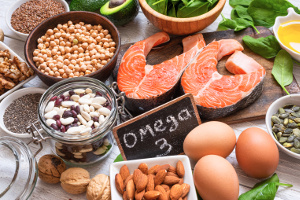
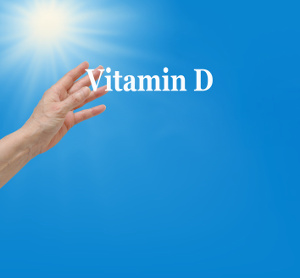 For decades, we’ve been told how dangerous the sun is and how important it is to protect ourselves. Now, a large British population study of more than half a million participants reveals that getting more sun exposure – even using tanning beds – is linked to fewer deaths from cardiovascular disease, cancer, and other things. The explanation lies in the UVB rays, which are the best way to get essential vitamin D, but only when the sun sits sufficiently high in the sky. It appears that all the sun awareness campaigns have done more harm than good, because it is vital to get enough sunlight, as long as we don’t get burned. The British study supports an earlier Swedish population study that revealed that lack of sun is every bit as harmful as smoking. People should take a vitamin D supplement during the winter period, and those who don’t get enough sun or who have difficulty with synthesizing vitamin D should supplement all year round.
For decades, we’ve been told how dangerous the sun is and how important it is to protect ourselves. Now, a large British population study of more than half a million participants reveals that getting more sun exposure – even using tanning beds – is linked to fewer deaths from cardiovascular disease, cancer, and other things. The explanation lies in the UVB rays, which are the best way to get essential vitamin D, but only when the sun sits sufficiently high in the sky. It appears that all the sun awareness campaigns have done more harm than good, because it is vital to get enough sunlight, as long as we don’t get burned. The British study supports an earlier Swedish population study that revealed that lack of sun is every bit as harmful as smoking. People should take a vitamin D supplement during the winter period, and those who don’t get enough sun or who have difficulty with synthesizing vitamin D should supplement all year round.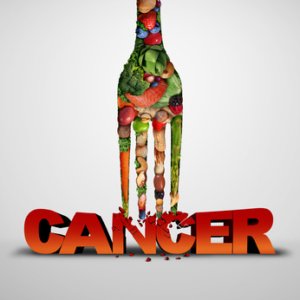
 Omega-3 fatty acids are known to positively support chemotherapy by maintaining body weight and muscle mass. According to a new study that is published in the esteemed science journal, Nutrition, omega-3 supplements can even reduce different side effects of chemotherapy.
Omega-3 fatty acids are known to positively support chemotherapy by maintaining body weight and muscle mass. According to a new study that is published in the esteemed science journal, Nutrition, omega-3 supplements can even reduce different side effects of chemotherapy.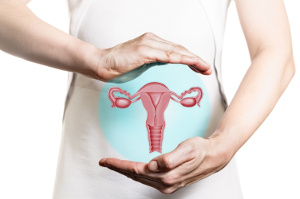 Ovarian cancer is one of the deadliest cancer forms because it metastasizes in a very special way. It appears, however, that vitamin D is able to counteract one of the mechanisms through which this cancer spreads, according to a new Japanese study that is published in Matrix Biology. It is a problem that vitamin D deficiencies are so common because the vitamin supports several anti-cancer mechanisms.
Ovarian cancer is one of the deadliest cancer forms because it metastasizes in a very special way. It appears, however, that vitamin D is able to counteract one of the mechanisms through which this cancer spreads, according to a new Japanese study that is published in Matrix Biology. It is a problem that vitamin D deficiencies are so common because the vitamin supports several anti-cancer mechanisms.
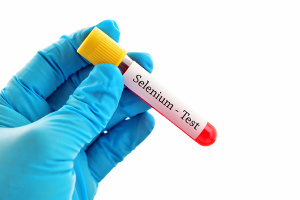
 ith the trace element selenium may reduce a man's risk of developing prostate cancer, according to a Danish report.
ith the trace element selenium may reduce a man's risk of developing prostate cancer, according to a Danish report.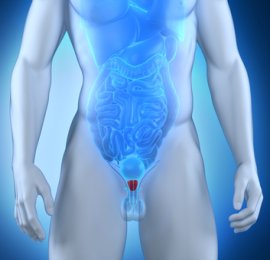 Low selenium status increases a man's risk of prostate cancer and Danish men are particularly susceptible, according to a study published in British Journal of Nutrition. Earlier studies have shown that supplementation with selenium prevents prostate cancer, and selenium yeast has been shown to have the best effect.
Low selenium status increases a man's risk of prostate cancer and Danish men are particularly susceptible, according to a study published in British Journal of Nutrition. Earlier studies have shown that supplementation with selenium prevents prostate cancer, and selenium yeast has been shown to have the best effect.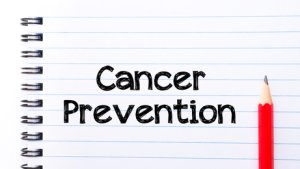 All our cells contain different selenium compounds that support a number of vital functions, and which have several cancer-fighting mechanisms. As an antioxidant, selenium prevents iron from developing some of the most harmful free radicals that can damage cellular DNA and lead to uncontrolled cell division. This is why a selenium deficiency combined with excess iron is a lethal cocktail. Although iron is essential, it is vital that we do not get too much. It is also important to get plenty of selenium from food and/or supplements and in a form that the body can absorb and utilize in each and every cell in order to be properly protected against cancerous substances.
All our cells contain different selenium compounds that support a number of vital functions, and which have several cancer-fighting mechanisms. As an antioxidant, selenium prevents iron from developing some of the most harmful free radicals that can damage cellular DNA and lead to uncontrolled cell division. This is why a selenium deficiency combined with excess iron is a lethal cocktail. Although iron is essential, it is vital that we do not get too much. It is also important to get plenty of selenium from food and/or supplements and in a form that the body can absorb and utilize in each and every cell in order to be properly protected against cancerous substances.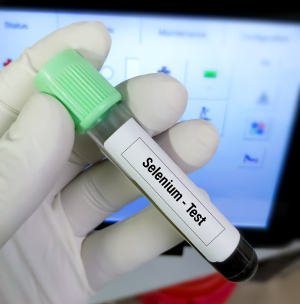 Over the past decades, numerous studies have linked low selenium levels in the blood to cardiovascular disease, cancer, increased risk of infection, thyroid disorders, and several other diseases. Due to the widespread problems with selenium deficiency, supplementation with this nutrient is of potential value to our general health. In a review article that is published in Oxidative Medicine and Cellular Longevity, the authors look at selenium’s role in connection with a host of different diseases and metabolic disorders.
Over the past decades, numerous studies have linked low selenium levels in the blood to cardiovascular disease, cancer, increased risk of infection, thyroid disorders, and several other diseases. Due to the widespread problems with selenium deficiency, supplementation with this nutrient is of potential value to our general health. In a review article that is published in Oxidative Medicine and Cellular Longevity, the authors look at selenium’s role in connection with a host of different diseases and metabolic disorders. Glioblastoma is a the most common type of brain tumor and is very aggressive. Existing therapies are not all that effective and most people die within a few years after being diagnosed with the disease. It is essential to have more focus on prevention, and diet plays a major role. According to a Chinese population study, vitamins B1, B2, B2, and B9 (folic acid) are associated with a reduced risk of developing glioblastoma. The scientists mention the different B vitamins and their role in brain health and cancer prevention and stress the importance of knowing about the factors that inhibit the body’s uptake and utilization of these vitamins.
Glioblastoma is a the most common type of brain tumor and is very aggressive. Existing therapies are not all that effective and most people die within a few years after being diagnosed with the disease. It is essential to have more focus on prevention, and diet plays a major role. According to a Chinese population study, vitamins B1, B2, B2, and B9 (folic acid) are associated with a reduced risk of developing glioblastoma. The scientists mention the different B vitamins and their role in brain health and cancer prevention and stress the importance of knowing about the factors that inhibit the body’s uptake and utilization of these vitamins.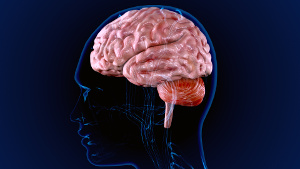 Brain cancer is associated with physical and cognitive disruptions, and many patients die within a few years. Compared with other cancers, the development of brain cancer is more complex and there has been focus on underlying causes such as head traumas, allergies, and electromagnetic radiation from cell phones, transmission towers, etc. Scientists have also looked at vitamins and brain health, whereas minerals have been ignored. Now, a team of Chinese scientists have conducted a large population study and found that higher intake of calcium, magnesium, iron, zinc, and copper is linked to a reduced risk of different types of brain cancer (gliomas). Apparently, selenium also has a protective effect.
Brain cancer is associated with physical and cognitive disruptions, and many patients die within a few years. Compared with other cancers, the development of brain cancer is more complex and there has been focus on underlying causes such as head traumas, allergies, and electromagnetic radiation from cell phones, transmission towers, etc. Scientists have also looked at vitamins and brain health, whereas minerals have been ignored. Now, a team of Chinese scientists have conducted a large population study and found that higher intake of calcium, magnesium, iron, zinc, and copper is linked to a reduced risk of different types of brain cancer (gliomas). Apparently, selenium also has a protective effect.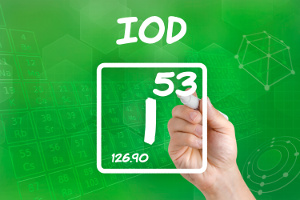 We humans are exposed to a host of toxic fluoride compounds from food packaging, cookie sheets, rain clothes, impregnation agents, tap water, toothpaste etc. Effective July 1., 2020, cardboard, parchment paper, and cookie sheets that contain fluoride compounds are banned in Denmark. Fluoride poisoning increases the risk of various thyroid disorders, breast cancer, kidney diseases, ADHD, and fetal damage. At the same time, it increases the need for iodine. In fact, the symptoms of fluoride poisoning are often the same as the those seen with iodine deficiency. Read more about how to avoid fluoride compounds in the environment and how to make sure to get enough iodine.
We humans are exposed to a host of toxic fluoride compounds from food packaging, cookie sheets, rain clothes, impregnation agents, tap water, toothpaste etc. Effective July 1., 2020, cardboard, parchment paper, and cookie sheets that contain fluoride compounds are banned in Denmark. Fluoride poisoning increases the risk of various thyroid disorders, breast cancer, kidney diseases, ADHD, and fetal damage. At the same time, it increases the need for iodine. In fact, the symptoms of fluoride poisoning are often the same as the those seen with iodine deficiency. Read more about how to avoid fluoride compounds in the environment and how to make sure to get enough iodine.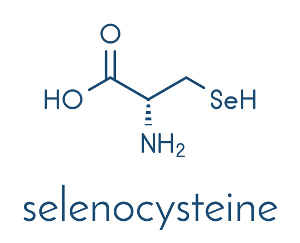 Selenium is a trace element that supports well over 25 different selenoproteins, which are important for our energy turnover, blood sugar balance, metabolism, cell protection, and a host of other essential functions. A group of scientists from Rutgers University in New Jersey, USA, has just uncovered the mechanisms involved in getting selenium into the “engine room” of the cells, from where it is metabolized into the different selenoproteins. According to the scientists, this new insight into the metabolism of selenium may lead to new therapies that can treat a variety of diseases such as diabetes, metabolic disorders, and cancer.
Selenium is a trace element that supports well over 25 different selenoproteins, which are important for our energy turnover, blood sugar balance, metabolism, cell protection, and a host of other essential functions. A group of scientists from Rutgers University in New Jersey, USA, has just uncovered the mechanisms involved in getting selenium into the “engine room” of the cells, from where it is metabolized into the different selenoproteins. According to the scientists, this new insight into the metabolism of selenium may lead to new therapies that can treat a variety of diseases such as diabetes, metabolic disorders, and cancer.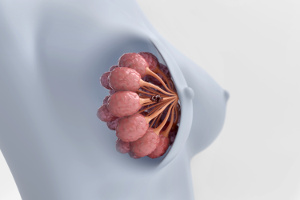 Breast cancer is most widespread in the western countries, and it is the leading cause of cancer-related deaths among women. Diet and lifestyle play a key role in the development of the disease. Earlier studies have shown that eating more oily fish or taking fish oil supplements that contain the omega-3 fatty acids, EPA and DHA, lowers the risk. A new study has shown that DHA supplements can be used as an adjuvant in cancer therapy. This particular omega-3 fatty acid inhibits the formation of some harmful molecules that stimulate the growth of breast cancer cells.
Breast cancer is most widespread in the western countries, and it is the leading cause of cancer-related deaths among women. Diet and lifestyle play a key role in the development of the disease. Earlier studies have shown that eating more oily fish or taking fish oil supplements that contain the omega-3 fatty acids, EPA and DHA, lowers the risk. A new study has shown that DHA supplements can be used as an adjuvant in cancer therapy. This particular omega-3 fatty acid inhibits the formation of some harmful molecules that stimulate the growth of breast cancer cells.
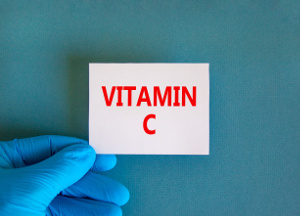
 Low blood levels of vitamin D are associated with an increased risk of breast cancer. Also, breast cancer patients with optimal levels of vitamin D in their blood can expect to live longer than breast cancer patients with low blood levels of the nutrient. But how much vitamin D is needed to prevent the dreaded disease?
Low blood levels of vitamin D are associated with an increased risk of breast cancer. Also, breast cancer patients with optimal levels of vitamin D in their blood can expect to live longer than breast cancer patients with low blood levels of the nutrient. But how much vitamin D is needed to prevent the dreaded disease?
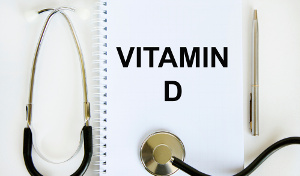 Millions of people worldwide drink arsenic-polluted water regularly. Arsenic is a toxin that is known to cause different types of cancer, including skin cancer. According to a new study published in American Journal of Cancer Research, it looks as if the active form of vitamin D, calcitriol, can prevent the onset of arsenic-induced skin cancer in a special type of skin cells. Calcitriol also appears to be able to prevent other types of cancer caused by arsenic.
Millions of people worldwide drink arsenic-polluted water regularly. Arsenic is a toxin that is known to cause different types of cancer, including skin cancer. According to a new study published in American Journal of Cancer Research, it looks as if the active form of vitamin D, calcitriol, can prevent the onset of arsenic-induced skin cancer in a special type of skin cells. Calcitriol also appears to be able to prevent other types of cancer caused by arsenic.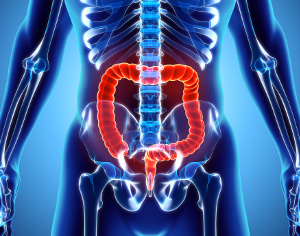 Colorectal cancer is one of the most common cancer forms in Denmark, which is why prevention is so important. According to a new American study that is published in Gastroenterology, increased intake of vitamin D appears to protect against bowel cancer, especially in people younger than 50 years. It even looks as if vitamin D may prevent intestinal polyps that can turn into cancer in some cases. The scientists say that higher intake of vitamin D may be relevant for prevention and may also serve as an inexpensive supplement to screening tests that are merely used for early diagnosis.
Colorectal cancer is one of the most common cancer forms in Denmark, which is why prevention is so important. According to a new American study that is published in Gastroenterology, increased intake of vitamin D appears to protect against bowel cancer, especially in people younger than 50 years. It even looks as if vitamin D may prevent intestinal polyps that can turn into cancer in some cases. The scientists say that higher intake of vitamin D may be relevant for prevention and may also serve as an inexpensive supplement to screening tests that are merely used for early diagnosis. - are you getting enough, though?
- are you getting enough, though?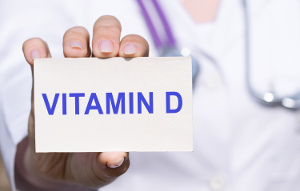 Photodynamic therapy is a kind of light therapy that is used to treat skin cancer, psoriasis, and other skin diseases. According to a review article published in Nutrients, vitamin D supplementation can improve the outcome of the treatment. In fact, vitamin D appears to have several positive effects on skin health. Taken in large doses, the vitamin can even repair skin damage caused by sunburns.
Photodynamic therapy is a kind of light therapy that is used to treat skin cancer, psoriasis, and other skin diseases. According to a review article published in Nutrients, vitamin D supplementation can improve the outcome of the treatment. In fact, vitamin D appears to have several positive effects on skin health. Taken in large doses, the vitamin can even repair skin damage caused by sunburns.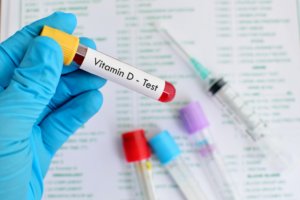 Cancer patients, who take high-dosed vitamin D supplements for at least three years may live longer, according to a study from Michigan State University, USA. It is not enough to treat cancer with surgery, chemotherapy and radiation. You also have to optimize the body’s vitamin D status. It is a problem that vitamin D deficiency is so common because it helps long-term prevention if you have adequate levels of the nutrient in your blood. The question is how much do we need, and is the sun sufficiently powerful to enable us to synthesize vitamin D in our skin during the winter period?
Cancer patients, who take high-dosed vitamin D supplements for at least three years may live longer, according to a study from Michigan State University, USA. It is not enough to treat cancer with surgery, chemotherapy and radiation. You also have to optimize the body’s vitamin D status. It is a problem that vitamin D deficiency is so common because it helps long-term prevention if you have adequate levels of the nutrient in your blood. The question is how much do we need, and is the sun sufficiently powerful to enable us to synthesize vitamin D in our skin during the winter period?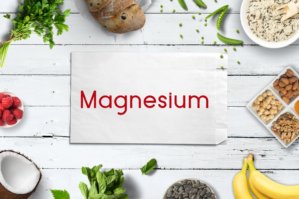
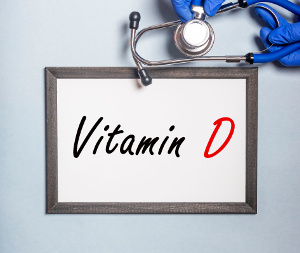 Vitamin D plays a major role in our health. The main focus, however, is on vitamin D’s importance for bones, while many health professionals are totally unaware of the nutrient’s other essential functions. According to a review article published in Nutrients, half the global population has low vitamin D levels in the blood, which increases the risk of cardiovascular disease, hypertension, cancer, type 2 diabetes, Alzheimer’s disease, respiratory infections like COVID-19, and early death. The authors also mention that vitamin D science is often inadequate or misleading because studies focus on supplementation rather than looking at blood levels of 25(OH)D. Consequently, trials are often made with far too small vitamin D doses or with too a short a trial period. In either case, blood levels of vitamin D fail to reach their optimum. What is more, levels of 25(OH)D in the blood should ideally be above 75 nmol/L in order to protect against cardiovascular disease, cancer, and early death. Because this threshold level is higher than the official threshold levels, the scientists recommend high-dosed vitamin D levels as a way to reach an optimal nutrient status.
Vitamin D plays a major role in our health. The main focus, however, is on vitamin D’s importance for bones, while many health professionals are totally unaware of the nutrient’s other essential functions. According to a review article published in Nutrients, half the global population has low vitamin D levels in the blood, which increases the risk of cardiovascular disease, hypertension, cancer, type 2 diabetes, Alzheimer’s disease, respiratory infections like COVID-19, and early death. The authors also mention that vitamin D science is often inadequate or misleading because studies focus on supplementation rather than looking at blood levels of 25(OH)D. Consequently, trials are often made with far too small vitamin D doses or with too a short a trial period. In either case, blood levels of vitamin D fail to reach their optimum. What is more, levels of 25(OH)D in the blood should ideally be above 75 nmol/L in order to protect against cardiovascular disease, cancer, and early death. Because this threshold level is higher than the official threshold levels, the scientists recommend high-dosed vitamin D levels as a way to reach an optimal nutrient status. The summer sun is our primary source of vitamin D, and previous population studies have suggested that vitamin D may help prevent breast cancer from developing. Danish scientists have looked closer at this relation and found that women from 50 years of age and older who spend a lot of time outdoors – especially between 10 am and 3 pm – have a lower risk of breast cancer. This is important knowledge because it takes years for breast cancer to develop. Vitamin D appears to have a number of different anti-cancer mechanisms, which is why it is vital for us humans to get plenty of the nutrient throughout life.
The summer sun is our primary source of vitamin D, and previous population studies have suggested that vitamin D may help prevent breast cancer from developing. Danish scientists have looked closer at this relation and found that women from 50 years of age and older who spend a lot of time outdoors – especially between 10 am and 3 pm – have a lower risk of breast cancer. This is important knowledge because it takes years for breast cancer to develop. Vitamin D appears to have a number of different anti-cancer mechanisms, which is why it is vital for us humans to get plenty of the nutrient throughout life. "After about one week of taking the Q10 supplement I could feel a huge difference," says 23-year old Alan Piccini, who has been suffering from extreme fatigue and muscle aches ever since he was a child.
"After about one week of taking the Q10 supplement I could feel a huge difference," says 23-year old Alan Piccini, who has been suffering from extreme fatigue and muscle aches ever since he was a child. “Taking capsules with co-enzyme Q10 has freed me of the severe side effects of my cholesterol lowering medicine,” Mrs Franken explains.
“Taking capsules with co-enzyme Q10 has freed me of the severe side effects of my cholesterol lowering medicine,” Mrs Franken explains.